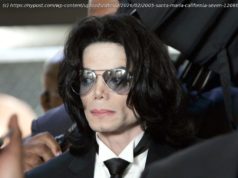Russian President Vladimir Putin is usually as difficult to read as some of his country’s most famous literature. He’s always calm and composed, rarely uttering a superfluous word. But this week felt a little different.
„It’s a broken record with futuristic songs“ was Peskov’s retort in March when asked for a comment on the first congressional hearing on alleged Russian interference.
Putin slams US election meddling claims as ‚lies‘
The bottom line, analysts and Kremlin watchers said here in Moscow, is that Russia didn’t want to become any more politically toxic for Trump than it already was.
„I think (Putin) didn’t really understand what was going on with Trump, “ said Dmitry Oreshkin, a Russian political scientist and Kremlin critic.
„So he reduced his rhetorical activity in that direction to avoid, God help him, making any mistakes or pressing any wrong buttons.“
This week, the policy changed
On Monday, Putin was at Versailles near Paris discussing European Union sanctions on Russia for its annexation of Crimea and military support for separatists in eastern Ukraine . „You wanted to know how sanctions on Russia could help overcome the crisis in southeastern Ukraine, “ he challenged a journalist at a joint press conference with French President Emmanuel Macron . „They cannot, “ Putin said.
He later told French newspaper Le Figaro that those who lost the US election were simply blaming Russia because they couldn’t admit their own failings.
And by Thursday at an international economic forum in his home city of St Petersburg, Putin commented on everything from Trump — whom he called „sincere“ and „straightforward“ — to how Russian hackers might be „patriotic“ without being state-sponsored to one of his oldest grievances — US missile defense systems around the world.
„You are all experienced adults, “ he berated an assembled group of Russian and international news agencies, arguing that American missile defense equipment in both Eastern Europe and Asia disrupt the global military balance.
„You keep silent on this issue. The world remains silent.“
A conscious decision
The Russians made a conscious decision to speak out, said Fyodor Lukyanov editor-in-chief of Russia in Global Affairs, despite their concerns that anything they say can be used by Trump’s opponents to discredit him.
Lukyanov said he believes it’s a predicament that has made the Kremlin uncomfortable.
„There is a wave, there is a process which Russia actually cannot control and who knows how far it can go?“
The longtime Kremlin watcher said Putin may be irritated by all the Russia-related controversy in Washington, but there’s also a possibility he feels emboldened by all the attention.
„This campaign in the United States made Putin such a great leader, such a big personality, “ he said.
„I cannot exclude that he’s pleased by this.“
And on Friday at a public plenary session at the economic forum in St. Petersburg, Putin once again took full advantage of the spotlight.
He compared accusations of Russian meddling in the US election to anti-Semitism and labeled the reports of Russian Ambassador Sergey Kislyak ’s meetings with Trump associates as „hysteria, “ saying the envoy was simply doing what he’s paid to do.
Putin also accused the West of „systematic, gross and unceremonious“ interference in Russian internal politics over the years.
Why now?
Perhaps Russia smelled an opportunity in the growing sense of US isolation.
First, last weekend’s G7 meeting in Sicily highlighted the serious disagreements between the United States and other world powers over issues such as migration and climate change; then on Sunday, German Chancellor Angela Merkel delivered a damning assessment that the EU could no longer „completely“ rely on the United States. And Trump defied allies by announcing Thursday that he was pulling the United States out of the Paris Agreement on climate change.
„A multipolar world is being established, “ Putin said Thursday, „something monopolists don’t like.“
For Putin, though, it may now be more about having nothing to lose rather than anything to gain, according to Kremlin watchers in Moscow.
The relationship with the United States is in free fall — but not because of any new geopolitical disagreements. And overcoming the old ones may be politically impossible for Trump in this climate. It’s a „very stupid“ situation for Russia, Lukyanov said.
One thing seems clear from Putin’s rhetorical marathon this week: He really wants to see an end to what he calls „Russophobia“ as well as allegations of election meddling in the United States.
In his final plenary session Friday in St Petersburg, the Russian leader issued a direct appeal: „Stop it.“






